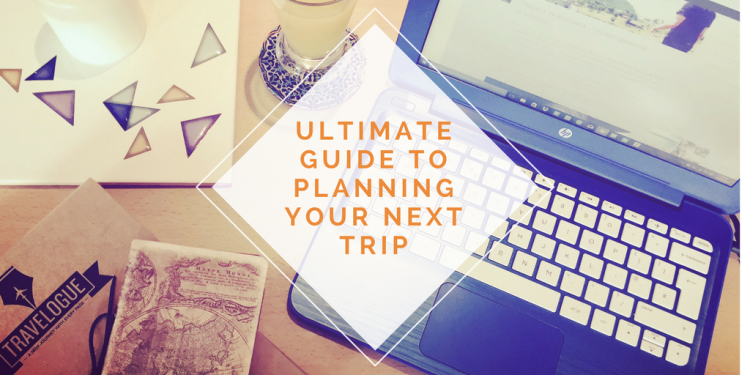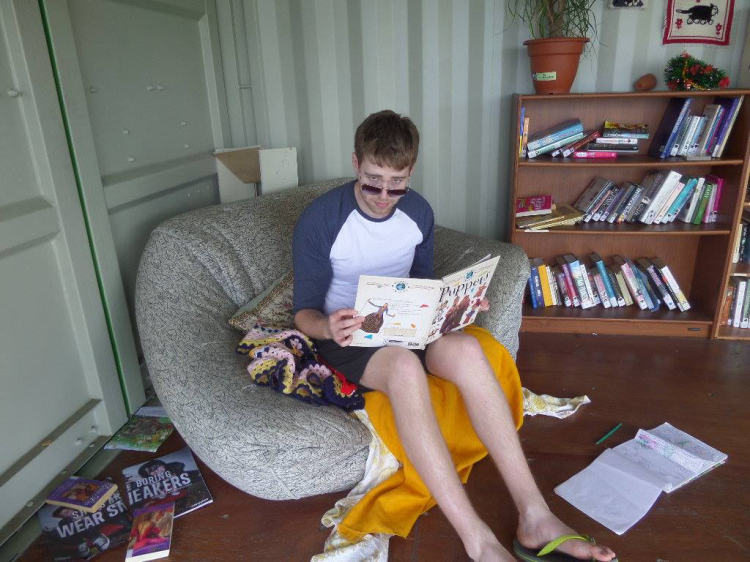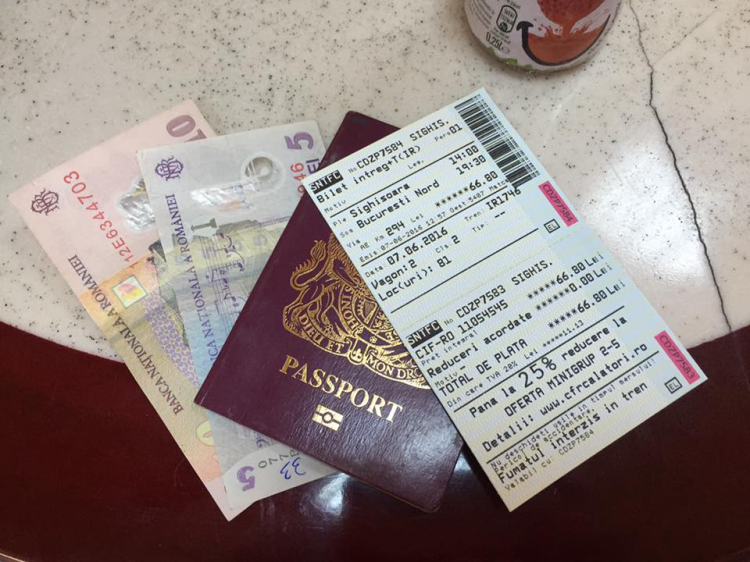
If you’re anything like me, you’ll admit that it sounds a super exciting idea to just turn up in a new place in a distant land; hop off the plane as a ‘free spirit’ without having any plans, any idea of how long you’re going to stay there, where you are going to go next, or how much money you are going to need… but realistically; as an obsessive planner I struggle with this concept that others seem to find so fulfilling.
In this post I will share with you the 11 steps of how I plan my trips travelling. How I choose where to go, how I know where in each country I want to go, how I prepare for travelling between destinations, how I budget for the trip and how I know just how much money I am going to need.
1. How long are you going for?

This is a good starting point and although the time frame doesn’t have to be exact, it is very important to have in mind whether you going to go away for days/ weeks/ months or years.
Look at it this way; there’s no point deciding you want to travel around the whole of Eastern Australia, or take a road trip in an old camper van across the whole of the USA, or even backpack around South America, if you only have limited time. Save these places for when you will have time and do them properly. If you are short on time, focus on smaller countries. And if you have years of time, then great! But get planning where and make it a reality…
2. How much money are you likely to have?

Unfortunately, travelling is always going to cost money. You might want to travel for years, but you are going to need some money to do that. Saying that, I am a massive believer in never letting money be an obstacle if you want to travel, even if it means saving for years.
If money seems like it’s holding you back, then it may also help to choose places that are realistic to your budget and avoid expensive countries such as Western Europe or Japan and instead head to cheaper backpacker destinations such as Eastern Europe, South East Asia, Peru, Bolivia and India.
3. Where are you going to go?

As a travel obsessive I sometimes feel like there’s a constant map of the world in my head, with a huge list of destinations I just can’t wait to go to. How I decide which one to go to next firstly has to meet the first 2 requirements, then I can start pinning down my next trip.
For example, I have decided I want to go to Morocco next. Morocco has been luring me in and getting higher on my list for a while now. With it’s close proximity to Europe, now seems like the perfect time as I will have no more than 3 weeks, it is also a cheap country so I won’t need a large budget and it’s also small enough to travel around in my small time frame.
4. Start the research on your chosen destination/s

The beginning of the research process is when it all starts to get exciting and real. I start with simple things like checking out the blogs of people who have already been to the places I am going to. I mainly search on ‘Pinterest’ or search the internet for relevant blog posts or I even search hashtags on Instagram to find people who have already been there. This bit is great for getting ideas for your itinerary.
Finally, if you haven’t already realised I love to read about travel, so buying a travel guide is another thing I do as soon as I’ve chosen my next destination. My favourite of all being a good old ‘Lonely Planet’ guide, which I will read through whilst keeping a note of every place I read that I want to go to (As well as where to avoid).
Lonely Planet books can be a bit expensive, so I usually look for second hand one first before purchasing one; either online or in charity shops, but bare in mind to avoid those which are really old editions (I usually avoid any that are older than 5 years). Another option is buying the E-Book instead of the paper book. It’s usually cheaper and particularly useful if you’re heading to lots of countries as it saves you carrying loads of books!
5. When are you going to go?

By doing the above research, you should now have an idea of what time of year is best to go to your chosen destinations/s. If not, search the internet or read your travel guide on when the best time of year is to go. This is very important if you are going to enjoy your destination to the full.
For me, countries such as Morocco and Egypt get way too hot in the summer and other countries such as parts of India and South America experience heavy monsoons which are best to be avoided. This is one thing I have learnt from experience, we headed to South East Asia at the hottest time of the year and spent 3 months sweating our way around the region, spending as much time in air conditioned shopping malls and cafe’s as we did in temples. So to be planned properly, the time of year and the climate should certainly be considered.
6. How much will it cost?

So now you know where you want to go, when and how long for. But how much money are you going to need when you’re there?
This is all down to research and calculations. I usually read travel blogs of people who have recently been to the destination/s and provided their budget. I use the word ‘recently’ as there’s not much point reading a post about a budget from 2005 as it will most likely have now changed. Again, guide books such as Lonely Planet are really good for stating how much things cost in each destination. You also need to decide if you’re going to be travelling on a budget, mid-range or luxury. My budgets are based on 3 key areas:
- Once you know how much your accommodation, travel, food/ drink and activities are likely to cost each day for each place, you can then work out your daily budget and then your total figure for daily spending. For example, you have worked out that on a backpacker budget you need £15 a day for backpacking around India. You want to go there for 4 weeks, so that is £420 in total.
- So now you know your daily budget, you need to know how much your flights are likely to cost. Search flight comparison websites to work out how much your flights are going to cost. Skyscanner is my favourite, you can easily set price alerts so you will receive emails when prices go up and down. You can also search by the whole country not just the city so you can see which airports are cheaper. For example: ‘England to Morocco – March 2017’. You can also search by the ‘cheapest month’. And once you select the destinations and the month it will then show you the cheapest dates within the whole month:

Top Tip: It’s also handy turning on private browsing when searching for flights to stop flight companies knowing what you’re searching and then putting the prices up.
- Extra costs: This could be visas, vaccinations, malaria tablets, travel insurance; All vital things which should always be taken into consideration into the budget as they will add up. Start booking appointments for vaccinations at least 3 months in advance
Once you have added your daily budgets, flights and extra costs up, you now know how much money you need to make the trip a reality. I have a spreadsheet template which I use whilst planning the budgets for my trips and this is particularly useful if going to lots of different places. So if you are familiar with Microsoft Excel you may also find it useful to set up a spreadsheet so your budget is easy to view, amend if necessary and it will keep track of the total budget for you .
7. Start saving money

If you haven’t already, now is definitely time to start putting money into your savings each time you’re paid and cutting out unnecessary spending. Check out my guide on How I Saved £10,000 in 10 Months to Travel the World for my top tips on how you can easily save enough money to travel the world too.
8. Plan an itinerary

Okay so even I don’t always stick to an itinerary, but it’s important to have an idea of where you want to go so you can at least have a vague route and it will save time researching it when you are away. For smaller trips, such as my recent trip around Romania, Bulgaria and Turkey, we only had 3 weeks so it made sense to plan the whole itinerary in advance.
To plan the itinerary, I usually already have my list of places I want to visit in each country written down that from my previous research.
I then look at maps, look at the logistics and distances in between places, is it possible to get from one place to another in one journey? Will it have to involve a night bus/ night train? How long do we want to spend in each place?
Top Tip! Check out my favourite website for train travel: Seat 61
9. Book your flights

Once you have your vague itinerary, or at least a start and end point, you now know which airports you will need to fly in and out of which mean’s it’s time to start thinking about booking your flight/s!
As previously mentioned, Skycanner is my favourite website to use to search for flight dates/ times and how much they cost. But I don’t always use Skyscanner to actually book the flights. I will go onto the individual flight company’s website (not via Skyscanner) and it is often a teeny bit cheaper. I like to book my flights around 5 months in advance, although I did once read that the best time to book a flight is only 1 month beforehand.
For our Round the World trip in 2014 we actually used STA travel, they booked all our main flights in one ticket, this is rarely the cheapest way to do it but for a small extra cost we had the flexibility to change the date of any of our flights up to 3 times.
10. Book your accommodation

For longer trips, I would usually just book the first few places in advance and no more, which would then provide flexibility if the itinerary was to change. However, many websites now allow free cancellation which provides that extra flexibility, we took advantage of this in our recent 3 week trip to Romania, Bulgaria and Turkey. We booked all our accommodation in advance knowing that it would save time when we were away but made sure that our rooms had free cancellation if there were to be any changes to our route.
My favourite websites for booking accommodation:
11. Buy your travel insurance

An essential cost of any trip, make sure you buy travel insurance. This is really quick and easy so it’s usually what I leave until last, so for that reason this is my final point.
For our Round the World Trip we used STA Travel for our insurance, for smaller trips we just use our bank provider.

Finally, it’s time to leave and enjoy your trip!
So there you have it, My Ultimate Guide To Planning Your Next Trip.
Are you a fan of travel planning? Are you looking to plan your next trip? If you have any questions or would like further advise on planning a trip, drop a comment and share your thoughts in the comments below!

- Pin it for later!


Haha that ‘just turn up and be a free spirit ‘…is me
LikeLiked by 1 person
Haha, sometimes I do wish I could be more like that, I just always seem to have a plan! 🙂
LikeLike
There’s nothing wrong with having a plan ..plans just never seem to work for me – I like the freedom of just flowing with the wind, I guess it helps I don’t have time frames.
LikeLike
True 🙂 yeah having no time frame definitely helps!
LikeLike
Really great tips and a practical game plan How-To for planning. Especially like the reminders for travel insurance and the private setting when for searching for flights!
LikeLiked by 1 person
Thanks! Glad you liked my tips 🙂
LikeLike
These are some good tips to get organized! Unfortunately I rarely follow any of them and tend to spontaneously book my next trip! Sometimes the best plan is to have no plan. But with that said I’m sure being more organized would have saved me stress and money!
LikeLike
Haha yeah definitely, having no plan probably is best for some people, especially those who are happier being spontaneous like yourself! 🙂 I’m not one of those people and I actually really enjoy planning lol, being spontaneous would seriously stress me out! Plus planning gets me really excited for the trip! 🙂
LikeLike
Some people hate planning, but I looove it and I think it’s the best way to get me excited for each trip 🙂 Well done on this guide, this is truly helpful!
LikeLike
Thanks so much! And I agree – Planning gets me excited for the trip too 🙂
LikeLike
I am also believer in money shouldn’t be an obstacle to travel so I traveled for years making dept in summer and then working and paying the dept rest of the months. Perfect tips! Keep travelling!
LikeLike
Yeh money should never be an obstacle, there’s always a way! 🙂 Glad you liked the tips 🙂
LikeLiked by 1 person
Great detailed guide. I love planning the trips. It all begins with desire and making the time, the rest follows 😉
LikeLike
Thanks so much! I agree 🙂
LikeLike
I love this post and so inspirational from someone so young..I am 51 and still don’t have the ” saving money thing down” and want to travel so many places…I am going to check out your other post..thanks gain for the great trips..sharing on twitter!
Valerie
LikeLike
Hi Valerie, thanks so much for your lovely comment, it makes me so happy that you found it inspirational and that you found my tips so useful 🙂 thanks again!
LikeLike
These are all fantastic tips. I am definitely a planner – I like to know what the ‘must sees’ are of a place, and also look for some hidden gems, so that I can plan out the right amount of time to be in a certain place.
LikeLike
Thanks! I agree, knowing the ‘must sees’ and hidden gems is essential to make sure you don’t miss them! 🙂
LikeLike
Hi Zoe! This is a nice post. I will print this out make short notes and pin it somewhere for planning. I severely lack planning skills. I guess just turning up and letting everything else sort themselves out when I get there is my style. Planning has never been. Nice blog and post!
LikeLike
Thanks so much! Planning certainly isn’t for everyone, but I really hope my post will help you with your planning skills! 🙂
LikeLike
I have done trips both ways but in my heart or hearts I am a planner. I have lists and spreadsheets going and at least 50 tabs open on my browser lol. I believe the planning builds the excitement and is one of the best parts of the trip. Some great tips here!
LikeLike
Haha wow 50 tabs, that’s some seriously impressive planning! 🙂 I also find spreadsheets are a great way to get organised whilst planning 🙂 planning is definitely one of the best parts of the trip, I love it too!
LikeLiked by 1 person
we have the same way of planning our trip or the next trip. I also am mindful of the expenses, especially on times that I travel solo, I do also at times think that the universe is providing as well. as long as i know what to ask and believe on it but also act on it. Bravo to this!
LikeLike
Thanks! 🙂 I agree, it’s definitely good to be mindful of expenses!
LikeLike
That’s a good guide, Zoe!
We’re definietely planning our trips in advance! Since we’re trying to travel with 0 money (because, as you said, money shouldn’t be an obstacle) we have a lot to check before. We need to find places to sleep on couchsurfing, good places to hitchhike, open dumpsters and farmer’s markets for freeganism and only then we’re looking for places to see. Although sometimes we don’t have time for that so we just ask our hosts what they recommend or we quickly check at the morning, just before going out to sightsee 🙂
To the “when are you going to go?” part, I’ll also add: check if there’re any events near the time you want to be there. Sometimes there’s a big festival or a big concert going on and you don’t want to miss it!
That’s how we planned our eurotrip – checking where and when are Prides around the Europe!
LikeLike
That’s seriously impressive and amazing! You’re proof that money should never be an obstacle. And very good point about when to go! Thanks 😀
LikeLiked by 1 person
I’m the travel planner for my family and a bunch of friends haha My background goes back to travel agency years so it’s second nature for me to plan. I always make sure the flights and accommodation are booked before departure. Whatever we do once there, that’s not usually planned 🙂
And we have a “travel fund” we always put money into. So we don’t have to save separately for each vacation/trip.
LikeLike
Thanks for your comment 🙂 Oh if your background is travel agency I bet you’re a very experienced travel planner then haha! 🙂 I have a travel fund too for future vacations/trips 🙂
LikeLike
Love this post! It really made me easier to plan my next trip! 🙂
LikeLike
That’s great to hear! Thank you! 🙂
LikeLiked by 1 person
Great tips! 🙂
LikeLike
Thank you! 🙂
LikeLike
Great post! Whilst being a free spirit is great, there’s nearly always some practicalities to consider unless you’ve got unlimited funds! The only thing I’d say though is to always be saving up for your travels even if you’ve not yet reached the planning stage!
LikeLike